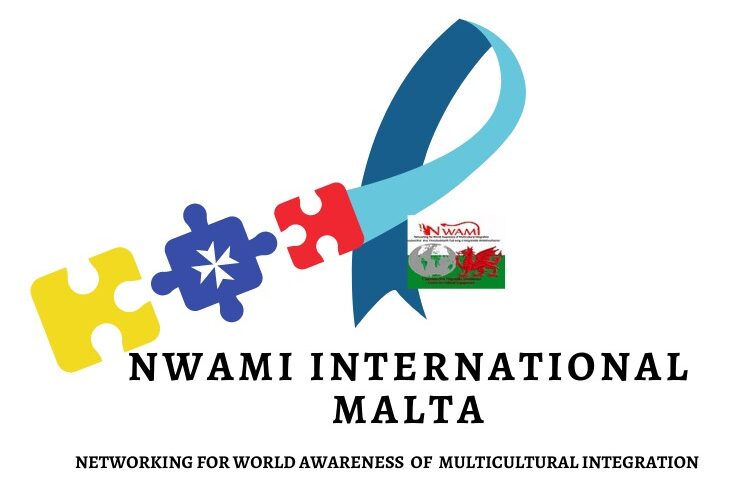Dear Friends, esteemed guests,
In our increasingly interconnected world, the importance of multicultural awareness cannot be overstated. As societies become more diverse and globalized, fostering an understanding and appreciation of different cultures has become imperative. Networking plays a pivotal role in promoting multicultural awareness, enabling individuals and communities to bridge cultural gaps, celebrate diversity, and create inclusive environments.
Today, I’d like to discuss the significance of networking for multicultural awareness and explore how we can apply this concept effectively in our communities. I’ll also touch on initiatives that can foster multicultural integration and ways to encourage people to get involved in these efforts.
First, let’s consider the benefits of networking for multicultural awareness.
Networking is a powerful tool that can facilitate cross-cultural exchange. It allows individuals from different backgrounds to connect, share experiences, and learn from one another. Through networking, we can break down barriers and build bridges between cultures.
Another crucial benefit is the building of global relationships. Networking transcends borders, enabling us to connect with people worldwide. These global connections foster a deeper appreciation of cultural diversity and promote unity on a global scale.
Networking exposes individuals to different perspectives. When we engage with people from diverse backgrounds, we gain insight into their worldviews, beliefs, and values. This exposure broadens our horizons and enriches our own perspectives.
Furthermore, networking enhances global competence. It equips us with the skills and knowledge needed to navigate diverse environments respectfully and effectively. This global competence is essential in our interconnected world.
Lastly, networking empowers multicultural leaders. By connecting with like-minded individuals and organizations, we can collectively drive change, advocate for diversity, and take on leadership roles in promoting multicultural awareness.
As you can see, networking serves as a catalyst for multicultural awareness by fostering understanding, empathy, and appreciation of diverse cultures. But how can we apply these principles effectively in our communities? Let’s look at some examples of multicultural integration initiatives.
First, the implementation of inclusive policies and best practices is crucial. Local governments and organizations can review and update existing policies to promote diversity and multicultural awareness. This may include hiring a diverse staff, providing language access services, and creating safe spaces for open dialogue.
Promotion of diversity and inclusion in leadership is another key initiative. Communities can actively seek diverse representation in leadership roles, ensuring that decisions reflect the needs and perspectives of all community members.
Engaging in volunteer and outreach programs that support marginalized communities can be a powerful way to promote multicultural awareness. These initiatives provide firsthand experiences and opportunities to connect with individuals from different backgrounds.
To combat racism, hate speech, and social exclusion, educational programs on microaggressions and subtle acts of exclusion can be incorporated into school curricula. This includes teaching students about the customs and behaviours of different cultures, fostering tolerance and respect from a young age.
Cross-cultural critical thinking and healthy debate can be fostered through community forums, discussion groups, and workshops. These platforms allow individuals to discuss cultural issues, share their experiences, and find common ground.
Communities can encourage the preservation and promotion of a deeper understanding of the meaning of multiple languages spoken within their region. Such initiatives foster inclusivity and help minority language speakers feel valued and understood.
Promoting interfaith dialogues within a diverse area fosters understanding and respect among different religious groups, bridging gaps and promoting unity.
Lastly, globally coordinated cultural competence training curricula can be offered by non-profits, corporations, educational institutions, and local community organizations. These programs equip individuals with the skills needed to navigate diverse environments respectfully.
By embracing the potential for cross-cultural interactions, communities can take meaningful steps toward creating a world where diversity is celebrated, understood, and integrated on both local and global scales. In doing so, we foster a sense of shared humanity and responsibility for the well-being of our interconnected world.
Now, how can we encourage people to get involved in these multicultural initiatives?
First, raise awareness by showcasing success stories. Share the experiences of individuals who have actively participated in multicultural initiatives. Personal narratives and testimonials can be compelling and inspiring, demonstrating how these initiatives can make a difference in people’s lives.
Work in collaboration, not isolation. Partner with local schools, businesses, religious institutions, and community organizations to create a network of support for multicultural initiatives. Collaborative efforts can attract a broader range of participants and resources.
Engage young people through schools, youth groups, and clubs. Encourage them to take leadership roles in multicultural initiatives, as younger generations are often more open to embracing diversity.
Recognize and celebrate the contributions of individuals who actively participate in multicultural initiatives. Recognition can be a powerful motivator and reinforce the idea that their efforts are valued.
Personalize your outreach efforts to specific groups or demographics within the community. Recognize that different individuals may have different motivations for getting involved, so customize your messaging accordingly.
Highlight shared values. Emphasize the shared values of multicultural initiatives, such as promoting equality, inclusion, and social justice. Appeal to people’s sense of ethics and their desire to make a positive impact.
Create spaces for open dialogue and discussions about multiculturalism and diversity. Encourage people to share their thoughts, concerns, and ideas, and be open to feedback.
Leaders and influencers in the community should actively participate in multicultural initiatives. Their involvement can set a positive example and encourage others to follow suit.
Present a compelling long-term vision for the impact of multicultural initiatives on the community. Show that these efforts are part of a larger, ongoing commitment to diversity and inclusion.
A compelling long-term vision might look like this:
“In our community, we envision a future where multicultural initiatives have transformed our society into a vibrant tapestry of diverse cultures, beliefs, and backgrounds, where every individual, regardless of their heritage, feels valued, respected, and empowered.
This vision provides a clear picture of the desired future and the positive impact of multicultural initiatives. It inspires individuals to work collectively toward making this vision a reality, fostering a sense of purpose, unity, and shared responsibility within the community.
In conclusion, with the joint effort of all our volunteers and supporters NWAMI (The North Wales Association for Multicultural Integration) in the UK and NWAMI International Malta has made significant strides in promoting multicultural integration. We have been actively involved in multicultural education, advocated for inclusive policies, organized cultural exchange programs, and collaborated with local governments, businesses, and communities.
By embracing these principles of networking and multicultural integration, we can bridge cultural divides, celebrate diversity, and create more inclusive and harmonious communities. Together, we can build a world where every individual is valued and respected, regardless of their background.
Thank you for your attention, and I’m open to any questions or discussions you may have.

Maria Gabriele DoublesinPresident NWAMI International Malta
Maria-Gabriele Doublesin is a leading figure in the pursuit of global multicultural integration. She serves as the founder and President of NWAMI International Malta (NIM) and holds the pivotal position of Chairperson of the organization's Project and Research Unit. Her impressive qualifications and dedication to the cause make her a significant driving force in this endeavour.
Her extensive background is anchored in her role as a warranted Intercultural Community Counsellor, a field that empowers her to bridge cultural divides and promote understanding among diverse communities. Her expertise extends beyond counselling as she is also a seasoned Leadership Educator and Mentor, nurturing future leaders who can champion the cause of multicultural integration.
At the academic level, Maria-Gabriele Doublesin possesses a dual master's degree in Transcultural Community Counselling and Counselling Psychology. Her academic achievements not only underline her commitment to the cause but also provide her with the knowledge and skills necessary to navigate the complex challenges of multicultural integration.
With Maria-Gabriele Doublesin's leadership and expertise, NWAMI International Malta is well positioned to continue making a significant impact on multicultural integration initiatives, locally and internationally. Her dedication, coupled with her education and experience, is a testament to her unwavering commitment to fostering a more inclusive and harmonious global community.
